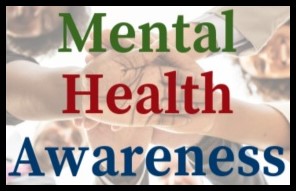 A traumatic brain injury (TBI), opens a new window can happen when someone's head suddenly and abruptly hits an object or when an object suddenly and abruptly hits someone's head. It can also happen when an object suddenly pierces a person's skull and enters their brain tissue. Initial symptoms after the incident can be mild, moderate, or severe.
A traumatic brain injury (TBI), opens a new window can happen when someone's head suddenly and abruptly hits an object or when an object suddenly and abruptly hits someone's head. It can also happen when an object suddenly pierces a person's skull and enters their brain tissue. Initial symptoms after the incident can be mild, moderate, or severe.
A person who has 'mild' TBI may experience:
• headache
• dizziness
• weakness
• tiredness
• sleeping too much - or not enough
• vision problems (blurriness)
• hearing problems (ringing in the ears)
• weird taste in their mouth
• mood or behavior changes
• cognitive impairment, such as problems with:
• confusion
• memory
• concentration
• attention
• thinking
A person who has 'moderate' or 'severe' TBI may experience some of those same symptoms, as well as:
• difficulty remaining conscious
• nausea or repeated vomiting
• convulsions or seizures, opens a new window
• headaches that don't get better
• dilation of the pupils of one or both eyes
• slurred speech
• weakness or numbness in the arms or legs
• loss of physical coordination
• increased confusion, restless, and/or agitation
• amnesia, opens a new window
Of course, traumatic brain injury is more than just a list of initial symptoms. It is a very serious condition. A person who experiences a traumatic brain injury may die, or they may never fully recover, living with irreversible injury that may require surgeries and/or years of physical therapy. If someone you know is showing these symptoms or has been injured in the head, it is important to get them professional medical help right away. Call 911 immediately.
Keep in mind that traumatic brain injury can happen to anyone. The primary cause of TBI among the general population is an accidental fall. In general, if a person is supposed to wear a helmet while they work, they're wearing that helmet because their job puts them in situations where a brain injury is more likely to occur. For example, athletes (especially those involved in full-contact sports), construction workers, and soldiers (especially those in combat zones) are more likely to experience traumatic brain injury than members of the general population.
This discussion of traumatic brain injury is for informational purposes only and is not intended as a replacement for a physician's treatment.
We have compiled a list of St. Tammany Parish Library resources and external websites that have more information about TBI. Please contact your nearest St. Tammany Parish Library reference librarian, opens a new window if you need help getting any of the items on this list:




Add a comment to: Mental Health Awareness: Traumatic Brain Injury (TBI)